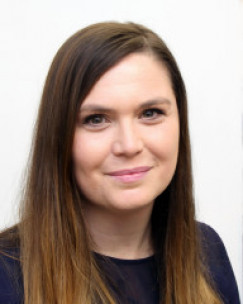Dr Alison Browne
University of Manchester
Alison Browne is a Lecturer in Human Geography and the Sustainable Consumption Institute (SCI) at The University of Manchester. Alison leads on Internationalisation activities for the SCI and sits on the SCI Management Group. Her work is structured around the following topics:
Dynamics of Everyday Life, Disruption and Change: My research primarily focuses on the social, performative and material dynamics of everyday life related to water, energy, and food. In a mixed methodological and transdisciplinary way I play with ideas of how such practices come to be disrupted, changed and governed. This includes a focus on everyday life and infrastructure and materiality, but also a consideration of the ways in which the practices of professionals shape the emergence, and governance, of everyday practices. I engage with a range of theories from social practices, feminist and everyday geographies, embodiment, material culture, intervention and (urban) experimentation. Although my work to date has focused on the UK, Australia, and Europe I am increasingly turning my attention to the large transitions in everyday practices and sustainability related to water, energy and food in Chinese cities.
These ideas find expression in these current projects:
-
“Reshaping the Domestic Nexus: Engaging policy understandings of kitchen practices and how they change” which follows on from a previous ESRC Nexus Network workshop grant. This project is in collaboration with Matt Watson, David Evans, Liz Sharp and Mike Foden from the University of Sheffield.
-
A UoM HSIF funded project with Dr Saska Petrova (Geography UoM) in collaboration with Dr Zhu Di (Chinese Academy of Social Sciences - CASS) entitled: “Domestic nexus: unpacking the interconnectivity of energy and water demand” focusing on water and energy transitions in post-socialist contexts including China.
-
A Chinese Academy of Social Sciences funded project “Meat Consumption and Everyday Life in Urban China” with Dr Zhu Di (CASS) and Dr Jo Mylan (SCI/MIOIR).
Recently completed projects where I also explored these ideas include:
-
“Patterns of Water” (with Medd, Anderson, Pullinger funded by EPSRC/ESRC),
-
“Dirt and Disruption at Summer Music Festivals” (with Hitchings, Jack funded by ESRC/UCL Bridging the Gap fund),
-
“Environmental Leapfrogging in the Global South: The evolution of water practices in developing and emerging markets” (with Evans, Gortemaker funded by Unilever),
-
“InterDEW – Interdisciplinary Approaches to Energy and Water Demand” (with Wood, Abi-Ghanem, Sharmina et al funded by UMRI)
-
“DROP Project: Benefit of Governance In Drought Adaptation” (funded by Interreg IVB, follow link for open access book on the project).
Impact and Knowledge Exchange: I work collaboratively on a range of research and consultancy projects that attempt to transform my academic research into governmental and business impact. This has involved funded work with a range of stakeholders including UKWIR (UK Water Industry Research), Artesia Consulting, CCWater, Thames Water, and Unilever etc. These industry engagements have led to further academic funding namely through two ESRC CASE PhD studentships: “Reframing water efficiency: towards interventions that reconfigure the shared and collective aspects of everyday water use” (Claire Hoolohan funded by Thames Water co-supervised with Alice Bows), and “Practices on the Move: Investigating trajectories of water and energy consumption in China” (Harriet Larrington-Spencer funded by Unilever co-supervised with Saska Petrova).
Critiquing Research Process and Methodology: I am committed to developing a critical reflexive academic practice within geography and interdisciplinary settings by reflecting upon research process and methodological innovation, and policy/public engagement. Recently I have explored the need to more seriously consider humour and laughter when developing research on everyday geographies (Browne, 2016), and the role of methods in intervening with policy and business stakeholders to reconfigure water and energy consumption (Browne et al., 2015). In previous research in Australia I have also explored policy and research processes which extend traditional notions of engagement in NRM/climate change (Browne & Bishop, 2011), mining and social licences (Browne et al., 2013), public participation and engagement with Indigenous Australian communities (Bishop et al., 2009).
